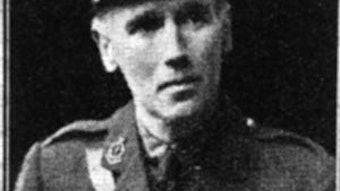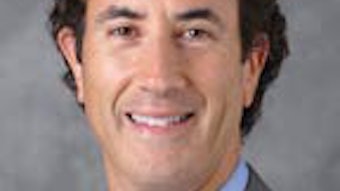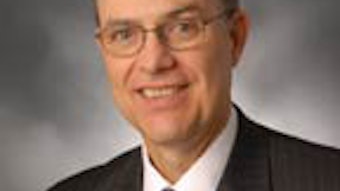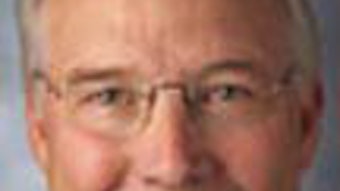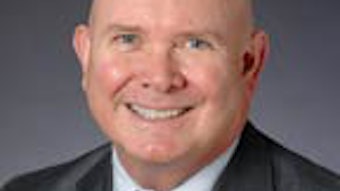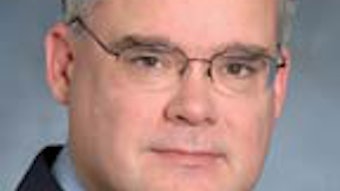Instruction Course Committee Coodinator Speaks
Eduardo M. Diaz, Jr., MD, Instruction Course Coodinator It seems like just yesterday I assumed the role of coordinator for instruction courses for the Academy, and yet, here we are four years later and I’m writing my last article for the Bulletin as coordinator. The past four years have, with few exceptions, been a pleasure. I’ve had the honor of working with some fantastic clinicians who have made every effort to produce what, year to year, has been outstanding instruction course curricula. I thank each of those committee members for making my tenure such an easy one. Special thanks are extended to Robert H. Maisel, MD, and Andrew Blitzer, MD, DDS, the two immediate past instruction course coordinators. Without their help, leading this committee would have been a much more daunting task. Their insight and experience helped all of us stay true to the committee’s mission. I also want to thank the Academy staff members whom I have been so fortunate to work with. Their guidance, attention to detail, and ability to keep the process moving forward while I tended to other things made my tasks much easier. It is with their support I am proud to say that the Instruction Course Advisory Committee was selected as a model committee for the Academy in 2010. The committee’s workflow has changed significantly during the last few years. When I first joined the committee, after recently completing my fellowship, the process for selecting suitable abstracts to present as instruction courses was, in my opinion, more subjective. While the subjective input of the committee remains important, we have tried to rely more on objective evaluations of past courses and their presenters. This has resulted in fewer, but better-received courses that have produced significant savings for the Academy while positively influencing the content of our curricula. That important transition began with Dr. Maisel, was continued by Dr. Blitzer, and, I hope, evolved further under my leadership. After serving as coordinator for instruction courses, I know that I leave the committee in good hands, but also pass a great committee on to Sukgi S. Choi, MD. I have every confidence that under her leadership the committee will continue to select excellent topics to be presented by experienced lecturers with a track record of producing quality, well-received courses, while assuring that new presenters are given the opportunity to provide insights into their own expertise. Like many others these days, the Academy faces pressure to provide more with less. It is asked to help prepare its newest members for the practice of otolaryngology–head and neck surgery and its “older” members with access to quality educational resources in order to facilitate maintenance of certification, all while continuing to face economic pressures and provide greater support for research and humanitarian projects—two very important foci. I’m confident the committee will continue to serve the AAO-HNSF well with all of the above. I will miss being an integral part of that evolution, but want to thank each of you and the leadership for giving me the opportunity to serve in this important role. Thank you.
Eduardo M. Diaz, Jr., MD, Instruction Course Coodinator
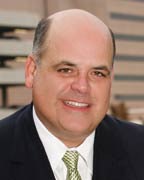 Eduardo M. Diaz, Jr., MD
Eduardo M. Diaz, Jr., MDIt seems like just yesterday I assumed the role of coordinator for instruction courses for the Academy, and yet, here we are four years later and I’m writing my last article for the Bulletin as coordinator.
The past four years have, with few exceptions, been a pleasure. I’ve had the honor of working with some fantastic clinicians who have made every effort to produce what, year to year, has been outstanding instruction course curricula. I thank each of those committee members for making my tenure such an easy one. Special thanks are extended to Robert H. Maisel, MD, and Andrew Blitzer, MD, DDS, the two immediate past instruction course coordinators. Without their help, leading this committee would have been a much more daunting task. Their insight and experience helped all of us stay true to the committee’s mission.
I also want to thank the Academy staff members whom I have been so fortunate to work with. Their guidance, attention to detail, and ability to keep the process moving forward while I tended to other things made my tasks much easier. It is with their support I am proud to say that the Instruction Course Advisory Committee was selected as a model committee for the Academy in 2010.
The committee’s workflow has changed significantly during the last few years. When I first joined the committee, after recently completing my fellowship, the process for selecting suitable abstracts to present as instruction courses was, in my opinion, more subjective. While the subjective input of the committee remains important, we have tried to rely more on objective evaluations of past courses and their presenters. This has resulted in fewer, but better-received courses that have produced significant savings for the Academy while positively influencing the content of our curricula. That important transition began with Dr. Maisel, was continued by Dr. Blitzer, and, I hope, evolved further under my leadership.
After serving as coordinator for instruction courses, I know that I leave the committee in good hands, but also pass a great committee on to Sukgi S. Choi, MD. I have every confidence that under her leadership the committee will continue to select excellent topics to be presented by experienced lecturers with a track record of producing quality, well-received courses, while assuring that new presenters are given the opportunity to provide insights into their own expertise.
Like many others these days, the Academy faces pressure to provide more with less. It is asked to help prepare its newest members for the practice of otolaryngology–head and neck surgery and its “older” members with access to quality educational resources in order to facilitate maintenance of certification, all while continuing to face economic pressures and provide greater support for research and humanitarian projects—two very important foci.
I’m confident the committee will continue to serve the AAO-HNSF well with all of the above. I will miss being an integral part of that evolution, but want to thank each of you and the leadership for giving me the opportunity to serve in this important role.
Thank you.

